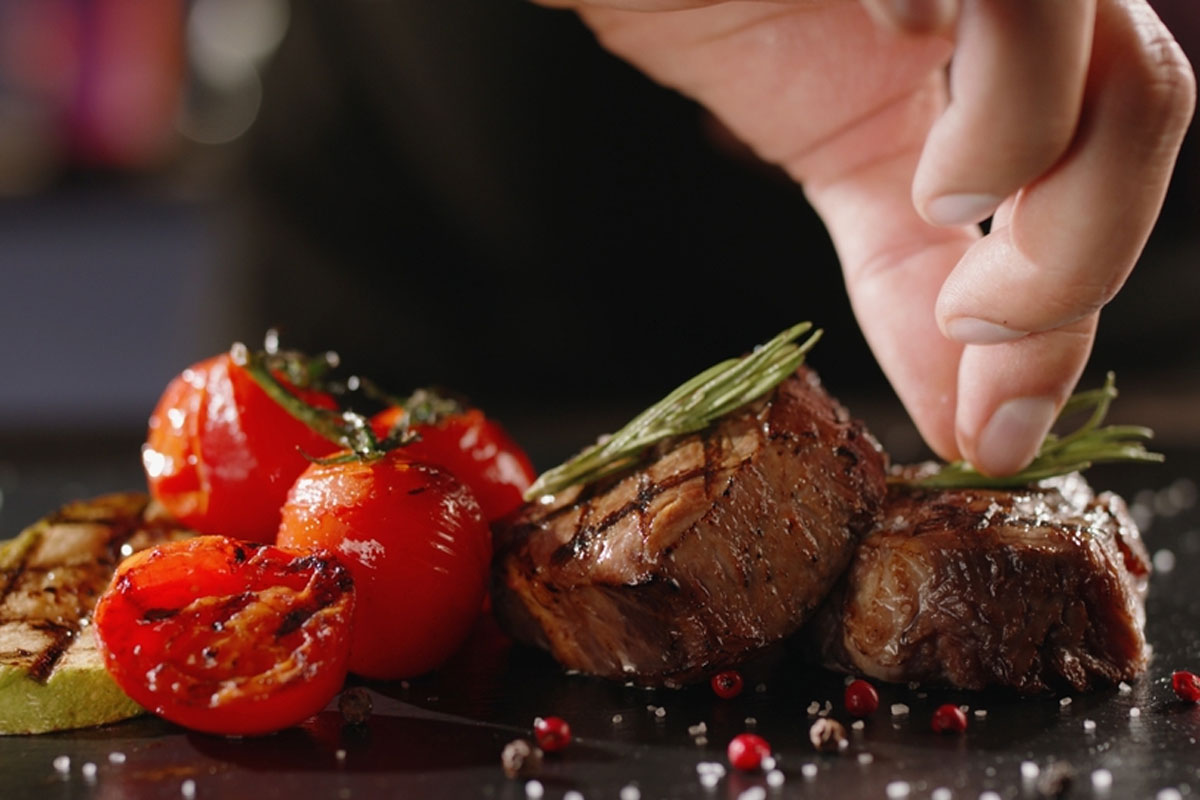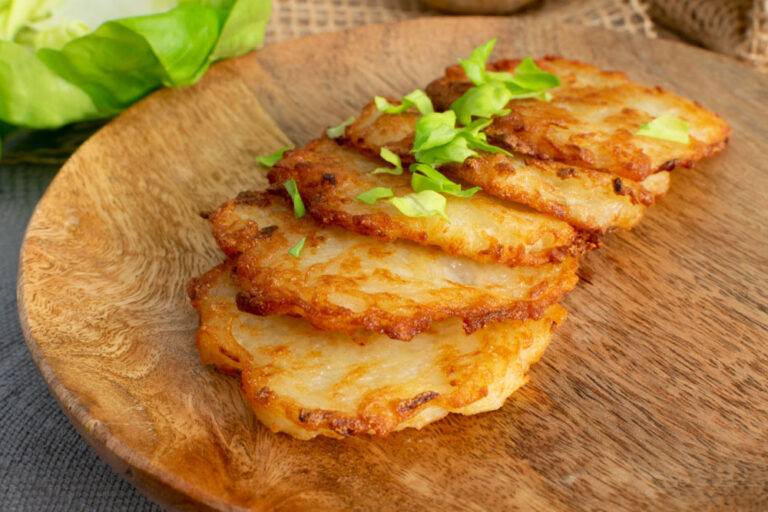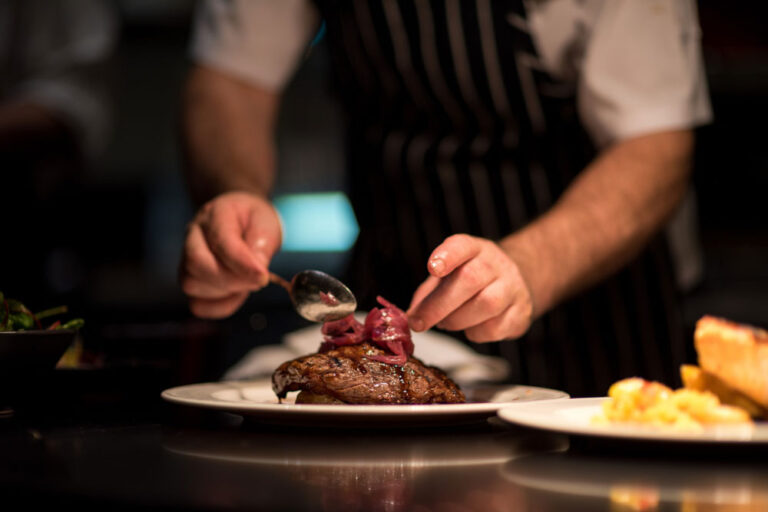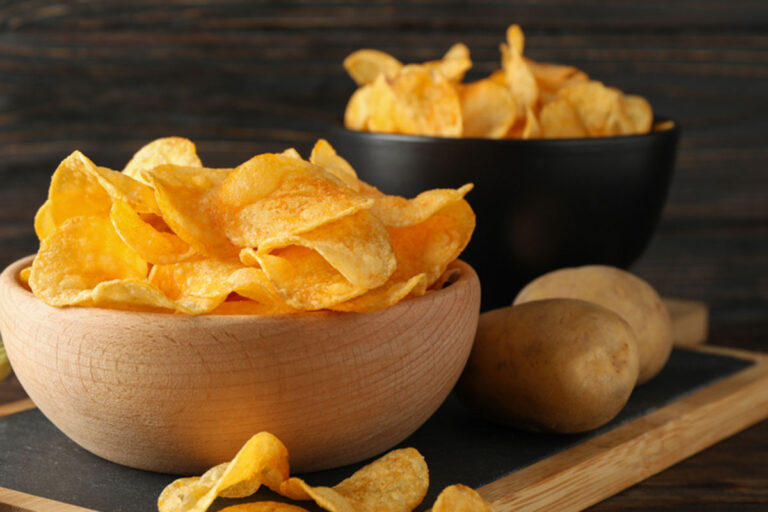Ballymaloe Cookery School, located in the picturesque countryside of East Cork is a renowned institution for culinary education. Founded in 1983 by Darina Allen, a prominent figure in the Irish food scene, the school has gained international acclaim for its comprehensive and hands-on approach to teaching the culinary arts.
Historical Background
Ballymaloe Cookery School is an integral part of the larger Ballymaloe estate, a pioneering venture in Irish hospitality and cuisine. The estate includes the renowned Ballymaloe House, a restaurant and hotel established by Myrtle Allen in the 1960s. Myrtle Allen, a farmer’s wife turned chef, was instrumental in revolutionizing Irish cuisine by emphasizing local, seasonal ingredients and traditional cooking methods. Her philosophy of celebrating the bounty of local produce laid the groundwork for the farm-to-table movement in Ireland.
Founding of the Cookery School
Inspired by Myrtle Allen’s pioneering work, her daughter-in-law Darina Allen founded the Ballymaloe Cookery School in 1983. Darina, herself a celebrated chef and food writer, sought to create a culinary school that would instill the same values of sustainability, respect for ingredients, and culinary excellence. The school was established on a 100-acre organic farm within the Ballymaloe estate, ensuring that students had direct access to fresh, high-quality produce.
Philosophy of the School
The educational philosophy at Ballymaloe Cookery School is deeply rooted in the principles of sustainability, organic farming, and a farm-to-table approach. This philosophy manifests in several key aspects:
Sustainability
The school emphasizes the importance of sustainable practices in all aspects of food production and preparation. This includes the use of renewable resources, minimizing waste, and promoting biodiversity. Students learn how to implement these practices in their cooking and future culinary ventures, fostering a generation of chefs who prioritize environmental responsibility.
Organic Farming
Central to Ballymaloe’s philosophy is its commitment to organic farming. The school’s farm avoids synthetic pesticides and fertilizers, instead employing natural methods to enhance soil fertility and manage pests. Crop rotation, composting, and the use of green manures are standard practices. This approach not only produces healthier food but also supports the ecological health of the farmland.
Farm-to-Table Approach
The farm-to-table philosophy at Ballymaloe ensures that students understand the entire food journey—from the field to the kitchen to the plate. This holistic approach is designed to deepen their appreciation for the quality and origin of their ingredients. By engaging in planting, harvesting, and tending to livestock, students gain firsthand knowledge of the work involved in producing food. This experience fosters a profound respect for the ingredients they use in their cooking.
Local and Seasonal Ingredients
Ballymaloe Cookery School champions the use of local and seasonal ingredients, a practice that supports local farmers and reduces the carbon footprint associated with transporting food. Students learn to create menus that reflect the changing seasons, highlighting the flavors and textures of fresh, locally sourced produce. This practice not only enhances the taste and nutritional value of dishes but also aligns with sustainable consumption patterns.
Culinary Skills and Beyond
While the primary focus is on developing culinary skills, the education at Ballymaloe extends beyond cooking techniques. The curriculum includes lessons on the ethical and environmental implications of food choices, encouraging students to become thoughtful and informed chefs. Additionally, the school offers instruction in related areas such as wine appreciation, kitchen hygiene, and business skills, providing a well-rounded education that prepares students for various roles in the culinary industry.
Impact and Legacy
The impact of Ballymaloe Cookery School’s philosophy is evident in its alumni, who carry these values into their careers. Many graduates have gone on to open restaurants, write cookbooks, and participate in media, spreading the school’s message of sustainability and respect for ingredients. The school’s influence extends globally, as its graduates apply the principles of organic farming and sustainable cooking in diverse culinary contexts.
Ballymaloe Cookery School’s rich history and steadfast philosophy of sustainability and farm-to-table cooking have made it a beacon of culinary education. By combining practical culinary training with a deep respect for the source and quality of ingredients, the school nurtures chefs who are not only skilled in the kitchen but also committed to fostering a more sustainable and ethical food culture.
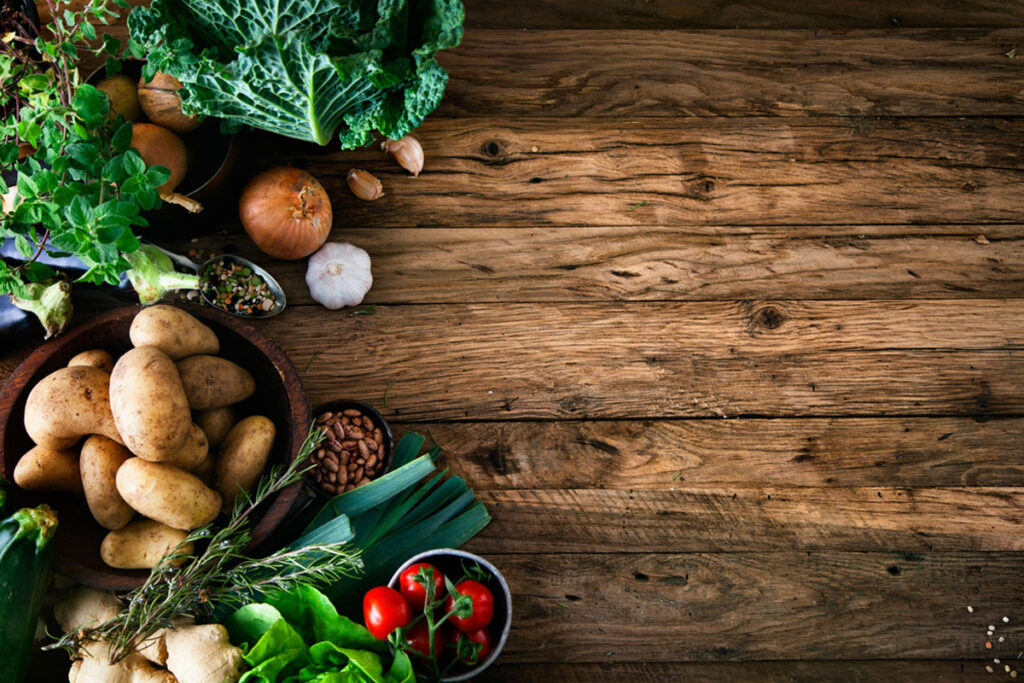
Courses and Programs at Ballymaloe Cookery School
Ballymaloe Cookery School offers a diverse range of courses tailored to various levels of culinary expertise, interests, and career aspirations. These courses are designed to provide comprehensive culinary education through practical, hands-on experience.
12-Week Certificate Course
The 12-week Certificate Course is the school’s flagship program, widely regarded as one of the most intensive and thorough culinary training programs available. This course is ideal for those aiming to embark on a professional culinary career or seeking to deepen their culinary knowledge. Key aspects of the course include:
- Broad Spectrum of Culinary Skills: Students receive training in essential culinary techniques, including knife skills, butchery, fish filleting, and vegetable preparation.
- Bread Making and Pastry: Comprehensive modules on baking cover a wide range of breads, pastries, cakes, and desserts. Students learn traditional techniques as well as modern innovations in pastry arts.
- Meat Preparation: Instruction covers various methods of preparing and cooking meat, from roasting and braising to curing and smoking. Emphasis is placed on understanding different cuts and their best uses.
- Vegetarian Cooking: Given the growing popularity of plant-based diets, the course includes significant focus on vegetarian and vegan cuisine, teaching students how to create flavorful and nutritious plant-based dishes.
- Farm-to-Table Philosophy: Integral to the course is the farm-to-table approach. Students spend time on the school’s organic farm, learning about sustainable agriculture, harvesting fresh produce, and understanding the importance of seasonality in cooking.
Short-Term Courses
For those unable to commit to the 12-week program, Ballymaloe offers a variety of shorter courses and workshops. These range from one-day sessions to week-long intensives, making them accessible to a broader audience, including home cooks and professionals seeking to update their skills.
- Weekend and One-Day Workshops: These brief, focused sessions cover specific skills or cuisines, such as knife skills, seafood cookery, or pizza making. They are perfect for enthusiasts looking to enhance their cooking repertoire.
- Five-Day Courses: These are more immersive than the shorter workshops and often focus on particular themes or advanced techniques. Topics might include advanced baking, fermentation, or international cuisines.
- Seasonal and Festive Courses: Timed to coincide with specific seasons or holidays, these courses teach students how to prepare seasonal dishes and festive meals. For example, courses on Christmas baking or summer barbecues provide specialized knowledge relevant to the time of year.
Specialty Programs
Ballymaloe also offers specialized programs that cater to specific interests and dietary requirements. These courses reflect the school’s commitment to catering to modern culinary trends and dietary needs.
- Vegetarian and Vegan Cooking: With an increasing number of people adopting plant-based diets, these courses offer in-depth instruction on creating balanced and delicious vegetarian and vegan meals. Students learn to use plant-based proteins and innovative cooking techniques to enhance flavors and textures.
- Gluten-Free Baking: As awareness of gluten intolerance and celiac disease grows, there is a corresponding demand for gluten-free recipes. This course covers the principles of gluten-free baking, teaching students how to create breads, pastries, and desserts that meet dietary restrictions without compromising on taste or texture.
- Fermentation and Preserving: These courses delve into traditional methods of food preservation, such as pickling, fermenting, and canning. Students learn the science behind these techniques and how to apply them to a variety of foods to enhance flavor and shelf life.
- Culinary Business and Entrepreneurship: For those aspiring to open their own food-related business, Ballymaloe offers courses on culinary entrepreneurship. These classes cover essential business skills, including menu planning, cost management, marketing, and customer service.
Professional Development
Professional chefs looking to refine their skills can benefit from Ballymaloe’s advanced training programs. These are designed to help experienced cooks expand their knowledge, stay updated with industry trends, and innovate in their culinary practices.
- Advanced Culinary Techniques: These courses provide experienced chefs with the opportunity to master complex culinary techniques, explore new cuisines, and learn modern cooking methods such as sous-vide and molecular gastronomy.
- Continuing Education: Ballymaloe offers continuing education opportunities for culinary professionals seeking certification or specialized training. These programs ensure chefs remain competitive and knowledgeable about the latest developments in the culinary world.
Ballymaloe Cookery School’s extensive range of courses ensures that there is something for everyone, from amateur food enthusiasts to seasoned professionals. The school’s commitment to hands-on learning, sustainable practices, and comprehensive culinary education equips students with the skills and knowledge to excel in the culinary arts and make meaningful contributions to the food industry.
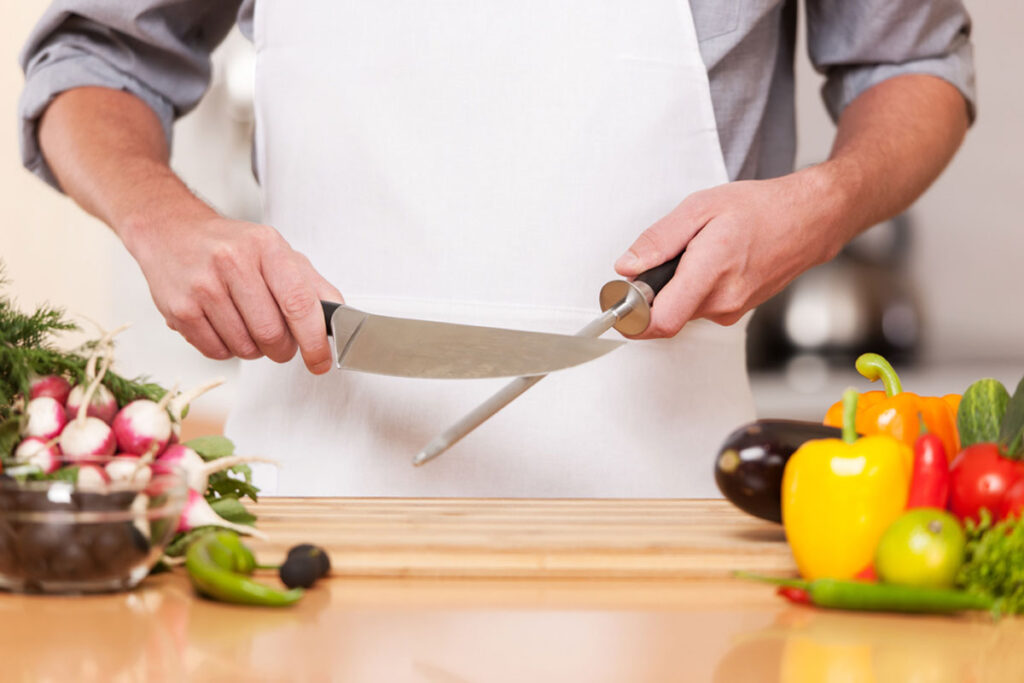
Teaching Methodology at Ballymaloe Cookery School
Ballymaloe Cookery School’s teaching methodology is designed to provide students with a deep and practical understanding of culinary arts. The approach emphasizes hands-on learning, personalized instruction, and a comprehensive curriculum that goes beyond cooking techniques to include essential knowledge about food, business, and culture.
Hands-On Learning
Practical Experience
From day one, students at Ballymaloe are immersed in practical cooking experiences. The school believes that the best way to learn is by doing, so students spend the majority of their time in the kitchen. This hands-on approach allows them to practice and perfect their skills under real-world conditions.
Daily Cooking Sessions
Each day typically involves multiple cooking sessions where students prepare a variety of dishes. These sessions are structured to build on each other, gradually increasing in complexity and technique. This progressive learning model ensures that students develop a solid foundation before moving on to more advanced concepts.
Recipe Repertoire
Over the course of their studies, students work with a vast array of recipes, encompassing different cuisines and cooking styles. This exposure helps them become versatile cooks capable of adapting to various culinary environments.
Small Class Sizes
Personalized Instruction
Classes at Ballymaloe are intentionally kept small to ensure that each student receives individual attention. This personalized instruction is crucial for effective learning, as it allows instructors to provide tailored feedback and guidance.
Student-Instructor Ratio
A low student-to-instructor ratio means that each student has ample opportunity to interact with the teachers. This close interaction fosters a supportive learning environment where students can ask questions, seek advice, and gain insights from experienced professionals.
Mentorship
Instructors act not only as teachers but also as mentors. They share their own experiences, offer career advice, and help students develop their personal cooking styles and professional aspirations.
Experienced Instructors
Professional Expertise
The faculty at Ballymaloe comprises seasoned chefs and culinary experts who bring a wealth of knowledge and experience to the classroom. They come from diverse backgrounds, including fine dining, pastry arts, bread making, and sustainable farming.
Guest Chefs and Lecturers
In addition to the core faculty, Ballymaloe regularly invites guest chefs and industry experts to conduct workshops and demonstrations. These guest sessions provide students with exposure to a wide range of culinary perspectives and specialties.
Comprehensive Curriculum
Culinary Skills
The curriculum covers a broad spectrum of culinary skills, ensuring that students gain competence in all aspects of cooking. Key areas of focus include:
- Basic and Advanced Techniques: From fundamental knife skills to complex cooking methods like sous-vide and molecular gastronomy.
- Baking and Pastry: Bread making, cake decorating, and dessert preparation.
- Meat and Seafood Preparation: Techniques for butchery, filleting, and preparing various cuts of meat and types of seafood.
- Vegetarian and Vegan Cooking: Innovative recipes and techniques for plant-based diets.
Wine Appreciation
Understanding wine is an integral part of a comprehensive culinary education. Ballymaloe includes lessons on wine tasting, pairing, and appreciation. These classes teach students about different types of wines, the regions they come from, and how to match them with food to enhance dining experiences.
Kitchen Hygiene and Safety
Maintaining a clean and safe kitchen is paramount. The school emphasizes kitchen hygiene, teaching students best practices for food safety, sanitation, and organization. This knowledge is essential for preventing foodborne illnesses and ensuring a safe cooking environment.
Business Skills
For students aspiring to open their own food-related ventures, Ballymaloe offers training in business skills. These lessons cover:
- Menu Planning: Creating balanced and appealing menus that cater to various tastes and dietary needs.
- Cost Management: Understanding food costs, pricing strategies, and budget management.
- Marketing and Branding: Techniques for promoting a culinary business, building a brand, and attracting customers.
- Customer Service: Essential skills for providing excellent service and creating a positive dining experience.
Field Trips and Real-World Experience
Local Producers and Markets
Students participate in field trips to local farms, artisan producers, and markets. These excursions provide insight into the sourcing of high-quality ingredients and the importance of supporting local food systems.
Farm and Garden Work
Given the school’s farm-to-table philosophy, students spend time working on the school’s organic farm and gardens. This hands-on agricultural experience teaches them about sustainable farming practices, seasonality, and the journey of food from soil to plate.
Culinary Events
Students also have opportunities to participate in culinary events, festivals, and pop-up dinners. These experiences allow them to apply their skills in dynamic, real-world settings and gain exposure to different aspects of the food industry.
Ballymaloe Cookery School’s teaching methodology is holistic and immersive, designed to produce well-rounded culinary professionals. Through hands-on learning, personalized instruction, and a comprehensive curriculum that includes practical cooking skills, wine appreciation, kitchen hygiene, and business acumen, students are equipped with the knowledge and confidence to excel in the culinary world. The school’s unique integration of farm-to-table principles and real-world experience further enriches their education, preparing them for successful careers in food and hospitality.
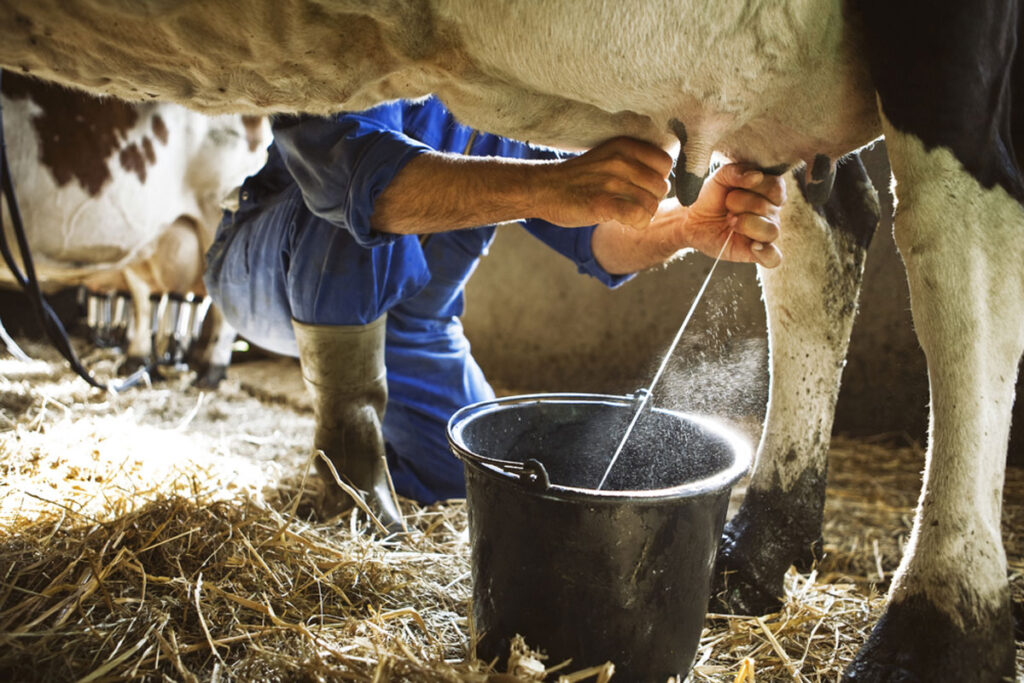
Farm and Gardens at Ballymaloe Cookery School
The farm and gardens at Ballymaloe Cookery School are not just a backdrop to the culinary education offered; they are integral to the learning experience, providing students with a hands-on understanding of sustainable agriculture and the farm-to-table philosophy that the school champions.
Integrated Learning Experience
Active Participation
Students actively participate in various farming activities, gaining firsthand experience in the agricultural processes that form the foundation of culinary arts. These activities include planting seeds, tending to crops, harvesting produce, and even milking cows. Such direct involvement helps students appreciate the effort and care that goes into growing food and raises awareness about sustainable farming practices.
Understanding Seasonality
Through their work on the farm, students learn about the importance of seasonality. They observe how different crops thrive at different times of the year and how seasonal variations impact the flavor and availability of ingredients. This knowledge is crucial for chefs, as it influences menu planning and the creation of dishes that highlight the best produce each season has to offer.
Organic Farming Practices
Sustainable Methods
The Ballymaloe farm adheres to organic farming principles, avoiding synthetic pesticides and fertilizers. Instead, natural methods are used to enhance soil fertility and manage pests. These practices include crop rotation, composting, and the use of natural predators to control harmful insects.
Comprehensive Education
Students learn about these organic practices and their benefits, gaining an understanding of how sustainable agriculture contributes to environmental health and food quality. This education instills a respect for nature and a commitment to sustainability that students carry into their culinary careers.
Diverse Produce
Wide Variety of Crops
The farm produces a wide variety of fruits, vegetables, and herbs, all of which are used in the school’s kitchens. This diversity includes everything from common vegetables like tomatoes and carrots to more specialized crops like heirloom varieties and exotic herbs. Such variety ensures that students experience a broad range of ingredients and learn how to cook with them.
Herb Gardens
The school also maintains extensive herb gardens, where students can pick fresh herbs for their cooking. Learning to identify and use different herbs enhances their culinary skills and knowledge of flavor profiles.
Orchards and Fruit Gardens
The orchards and fruit gardens provide a selection of fresh fruits, such as apples, pears, berries, and more. Students learn to incorporate these fresh fruits into their recipes, whether in desserts, sauces, or salads, appreciating the difference that high-quality, fresh ingredients make in their dishes.
Livestock and Animal Husbandry
Diverse Livestock
The farm is home to a variety of livestock, including cows, pigs, chickens, and sheep. Students engage in activities such as milking cows and collecting eggs, which provide insight into the daily operations of a working farm and the origins of dairy and poultry products.
Humane Practices
Animal husbandry at Ballymaloe is conducted with a strong emphasis on humane and ethical treatment. Students learn about the importance of animal welfare and how it impacts the quality of meat and dairy products. This knowledge helps them make informed choices about sourcing ingredients and promoting ethical consumption.
Dairy Production
Milking cows and understanding the basics of dairy production allow students to see the process behind milk, cream, butter, and cheese. This hands-on experience with dairy production enhances their appreciation for these ingredients and their applications in cooking and baking.
Educational Gardens
Educational Value
The school’s educational gardens serve as outdoor classrooms where students can learn about plant growth, biodiversity, and sustainable gardening techniques. These gardens demonstrate how even small-scale gardening can produce a variety of fresh, organic ingredients.
Innovative Practices
Students are exposed to innovative gardening practices such as permaculture and biodynamics, which focus on creating self-sustaining ecosystems. Learning these methods broadens their understanding of agricultural sustainability and inspires creative thinking in their culinary practices.
Impact on Culinary Education
Farm-to-Table Integration
The integration of the farm and gardens into the culinary curriculum ensures that students develop a comprehensive understanding of the food cycle. From seed to plate, they witness and participate in each stage, which deepens their connection to the ingredients they use.
Flavor and Quality
Cooking with ingredients harvested straight from the farm teaches students the importance of freshness and quality in cooking. They experience firsthand how freshly picked produce can enhance the flavor and nutritional value of their dishes.
Sustainability Ethos
The farm and garden experience reinforces Ballymaloe’s ethos of sustainability and respect for the environment. Students carry these values with them, promoting sustainable practices in their future culinary endeavors and influencing the broader food industry.
The farm and gardens at Ballymaloe Cookery School are central to its educational philosophy, offering students a unique and immersive experience that combines culinary arts with sustainable agriculture. By engaging in activities such as planting, harvesting, and animal husbandry, students gain a profound appreciation for the origins of their ingredients and the importance of sustainability. This hands-on experience not only enhances their culinary skills but also instills values of environmental stewardship and ethical sourcing, preparing them to be thoughtful and innovative contributors to the culinary world.
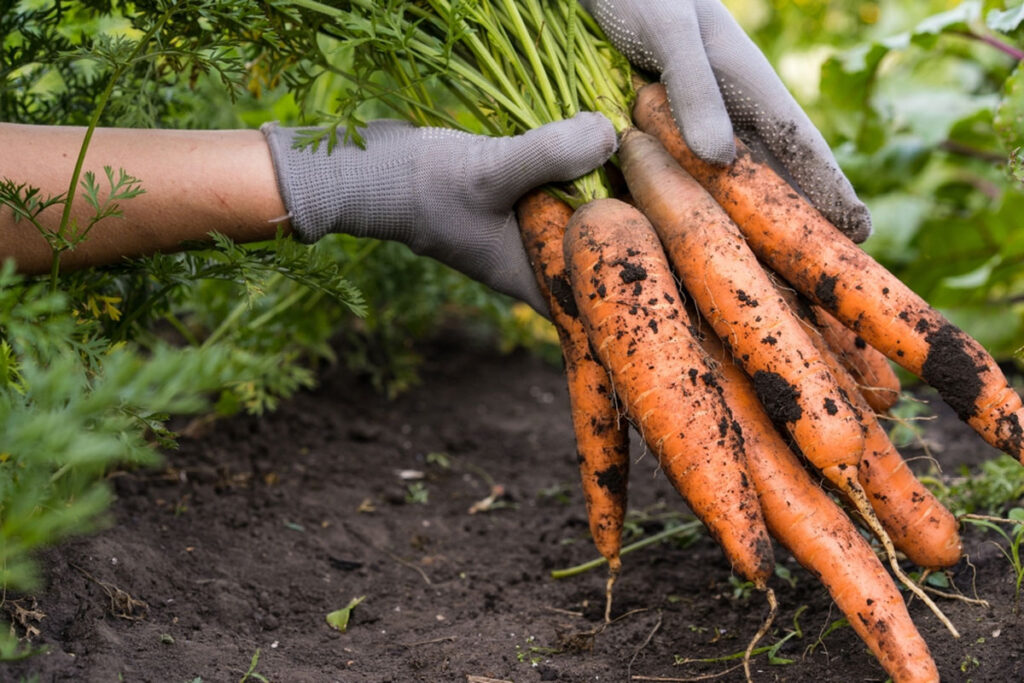
Alumni and Influence of Ballymaloe Cookery School
Graduates of Ballymaloe Cookery School have made significant impacts in the culinary world, leveraging the comprehensive education and sustainable philosophy they acquired during their time at the school. The influence of Ballymaloe’s alumni extends globally, manifesting in diverse culinary ventures and contributions that emphasize sustainability, quality, and innovation.
Notable Alumni and Their Achievements
Renowned Chefs and Restaurateurs
Many Ballymaloe alumni have become successful chefs and restaurateurs, opening acclaimed establishments that reflect the school’s principles. Some notable examples include:
- Rachel Allen: A prominent chef, food writer, and television personality, Rachel has authored several bestselling cookbooks and hosted popular cooking shows. She is also a key instructor at Ballymaloe Cookery School.
- Thomasina Miers: Winner of BBC’s “MasterChef,” Thomasina co-founded the successful Mexican street food restaurant chain Wahaca, which emphasizes fresh, seasonal ingredients and sustainability.
- Clodagh McKenna: A chef, television presenter, and author known for her cookbooks and regular appearances on cooking shows, Clodagh has become a household name in the culinary world.
Authors and Media Personalities
Ballymaloe graduates have also made their mark as food writers, cookbook authors, and media personalities. Their works often highlight the importance of seasonal cooking, sustainable practices, and the use of organic ingredients. Alumni who have authored influential cookbooks and appeared on major cooking shows help disseminate the school’s philosophy to a broader audience.
Food Entrepreneurs and Innovators
Some alumni have ventured into food entrepreneurship, creating innovative food products, starting catering businesses, and developing culinary-related startups. These ventures often emphasize organic, locally sourced ingredients, and sustainable practices, reflecting the Ballymaloe ethos.
Influence on the Culinary World
Global Spread of Sustainable Practices
The influence of Ballymaloe’s philosophy is evident in the global spread of sustainable and organic cooking practices championed by its alumni. By opening restaurants and businesses that prioritize these principles, graduates promote a more environmentally conscious approach to food production and consumption.
Education and Mentorship
Many alumni return to Ballymaloe as guest instructors or lecturers, sharing their experiences and expertise with current students. This ongoing connection helps maintain a strong alumni network and ensures that the school’s values continue to influence new generations of chefs and culinary professionals.
Community and Social Impact
Ballymaloe alumni often engage in community initiatives and social enterprises that focus on food education, sustainability, and improving food systems. These projects range from urban gardening programs to educational workshops that teach communities about the benefits of organic farming and healthy eating.
Culinary Awards and Recognition
Graduates frequently receive accolades and recognition within the culinary industry, further enhancing Ballymaloe’s reputation. Their success in culinary competitions, awards, and media appearances underscores the high level of training and the innovative spirit fostered at the school.
Alumni Network and Support
Extensive Network
The alumni network of Ballymaloe Cookery School is extensive and active, providing a valuable resource for graduates. This network facilitates collaboration, knowledge sharing, and professional opportunities, helping alumni stay connected and support each other’s ventures.
Lifelong Learning and Development
Ballymaloe encourages lifelong learning and professional development. Alumni have access to continuing education opportunities, workshops, and special events that help them stay current with industry trends and innovations.
Mentorship Programs
The school often pairs new graduates with experienced alumni mentors. This mentorship program helps recent graduates navigate their early careers, providing guidance, advice, and support from seasoned professionals who understand the challenges and opportunities in the culinary world.
The alumni of Ballymaloe Cookery School are a testament to the institution’s excellence in culinary education and its profound influence on the food industry. By achieving success in various culinary fields, from opening restaurants to writing cookbooks and appearing on television, alumni perpetuate Ballymaloe’s values of sustainability, quality, and innovation. Their ongoing contributions help shape a more sustainable and conscientious culinary world, spreading the school’s philosophy far and wide. The strong alumni network further enhances this influence, fostering a community of professionals dedicated to advancing the principles they learned at Ballymaloe.
Ballymaloe Cookery School is not just a place to learn how to cook; it is a place to understand food in its entirety, from the ground up. Its commitment to sustainability, hands-on teaching approach, and integration with a working organic farm make it a unique and influential institution in the culinary world. Whether you are an aspiring chef or a food enthusiast, Ballymaloe offers an immersive and transformative educational experience.
In Conclusion
Ballymaloe Cookery School is far more than a culinary training ground; it is a comprehensive institution where students gain a profound understanding of food from its origins to its final presentation on the plate. This holistic approach to culinary education sets Ballymaloe apart, emphasizing the interconnectedness of agriculture, sustainability, and gastronomy.
Commitment to Sustainability
At the heart of Ballymaloe’s philosophy is a steadfast commitment to sustainability. The school’s 100-acre organic farm serves as a living classroom, where students learn about sustainable agricultural practices that prioritize environmental health and resource conservation. This experience instills in students a deep respect for nature and an understanding of the critical role that sustainable practices play in the culinary world.
Hands-On Teaching Approach
Ballymaloe’s teaching methodology is highly practical, ensuring that students gain hands-on experience in all aspects of cooking. Small class sizes enable personalized instruction from experienced chefs, allowing students to develop their skills through direct application and practice. This immersive learning environment ensures that students leave with not only theoretical knowledge but also practical expertise that prepares them for real-world culinary challenges.
Integration with a Working Organic Farm
The integration of the school with a working organic farm provides students with unique insights into the food production process. By engaging in activities such as planting, harvesting, and animal husbandry, students gain firsthand experience of the effort and care required to produce high-quality, sustainable ingredients. This farm-to-table approach fosters a deep appreciation for the origins of food and the importance of using fresh, local produce.
Influential Institution in the Culinary World
Ballymaloe Cookery School’s influence extends well beyond its campus. Its graduates have gone on to achieve significant success in various culinary fields, spreading the school’s philosophy of sustainable and organic cooking globally. Through their restaurants, cookbooks, and media appearances, Ballymaloe alumni continue to champion the values of sustainability, quality, and innovation in the culinary arts.
An Immersive and Transformative Educational Experience
Whether you are an aspiring chef looking to launch a professional career or a food enthusiast eager to deepen your culinary knowledge, Ballymaloe Cookery School offers an immersive and transformative educational experience. The combination of rigorous culinary training, hands-on farming experience, and a deep commitment to sustainability equips students with the skills and knowledge to make meaningful contributions to the culinary world.
Final Thoughts
Ballymaloe Cookery School stands as a beacon of culinary education, where the art of cooking is intertwined with a profound understanding of the food’s journey from farm to table. Its unique blend of practical training, sustainable practices, and organic farming education creates a learning environment that is both inspiring and impactful. At Ballymaloe, students do not just learn to cook—they learn to honor the source of their ingredients, respect the environment, and embrace a holistic approach to food that is essential for the future of the culinary arts.




